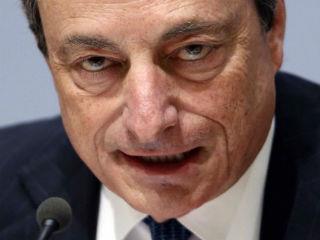A month after announcing a half-trillion-euro extension of the European Central Bank’s ‘quantitative-easing’ programme and hinting the bank would do little for most of 2017, its president, Mario Draghi, is in the spotlight amid an anti-European Union backlash

It has sparked criticism especially in Germany. Recent ECB policies combined with rising inflation are ‘catastrophic’ for Germany, said Markus Soeder, a close ally of Chancellor Angela Merkel. The German economy certainly doesn’t need a stimulus by the ECB. But elsewhere in the Eurozone, criticism focuses on the ECB failure to revive the many sluggish economies.
by
N. Peter Kramer
Politicians in Germany, France, Italy and The Netherlands, which all face general elections this year, have recently stepped up attacks on the ECB, complaining it is doing too little, or too much, to support the Eurozone’s €10 trillion economy. In all four countries, mainstream parties face pressure from Eurosceptic challengers expected to win a substantial share of the vote. The ECB president has pledged to ‘keep a steady hand’ through this turbulent political year. Pressure mounts on him to show a next move.
The lack of positive economic prospects across the Eurozone, where unemployment rates vary from more than 20% in Greece and Spain to 4% in Germany, is fuelling nationalist sentiment. While most southern EU member states still stagnate economically, growth in Germany accelerated to a five-year high of 1,9% in 2016, and it posted a budget surplus for a third straight year, the first time that has happened in at least four decades, according to data published last week.
In the Eurozone, inflation surged to a three-year high of 1,1%. It has sparked criticism especially in Germany. Recent ECB policies combined with rising inflation are ‘catastrophic’ for Germany, said Markus Soeder, a close ally of Chancellor Angela Merkel. The German economy certainly doesn’t need a stimulus by the ECB. But elsewhere in the Eurozone, criticism focuses on the ECB failure to revive the many sluggish economies.
Differences between the economies of the Eurozone seem to be unbridgeable by a monetary solution. ‘The euro is threatening the future of the European Union’, Nobel Prize winner Prof. Joseph E. Stiglitz wrote in his book of the same name.







